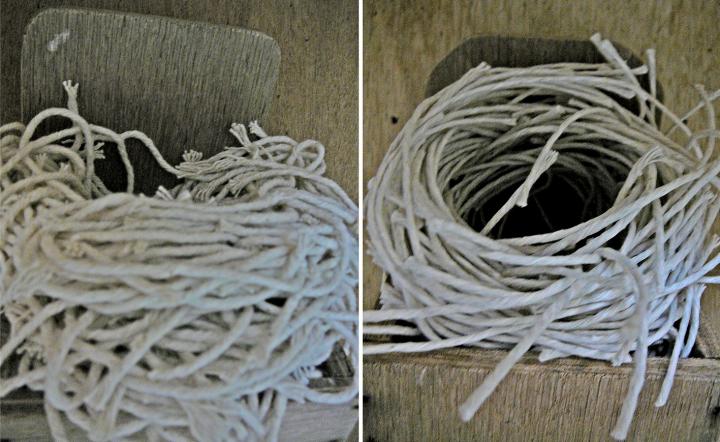Birds learn the structural efficacy of nest material
Scientists at St Andrews University and The Roslin Institite have shown that learning about materials' structural properties is important for birds' nest-building behaviour.

Scientists at St Andrews University and The Roslin Institite tested the popular notion that birds' choice of nest material is solely dependent on their genes. After providing zebra finches with experience of building with stiff or floppy string, they found that birds learn to choose more the more efficient stiff string and to avoid less efficient building materials.
The research showed that learning about materials structural properties is important for birds' nest-building behaviour. Learning about efficacy of building would allow wild birds to choose appropriate nest materials suited to the habitat in which they find themselves.
Our study has shown, contrary to popular belief, that birds can learn which building materials work best to build nests with much like you or I might when we select the best materials for DIY or craft projects.
Nest building is not innate because if genes were the only factor underling birds' nest-material selection, then zebra finches choice of nest-material would have been the same regardless of their previous building experiences.
This year the researchers have also published a study that mapped the neural circuits underlying nest building behaviour and found that these include the brain regions that are involved in rewarding behaviour so perhaps these males find crafting their nests quite gratifying!
The research has been published in the Proceedings of the Royal Society B and the authors are Ida E. Bailey, Kate V. Morgan, Marion Bertin, Simone L. Meddle and Susan D. Healy. rspb.royalsocietypublishing.org/content/281/1784/20133225
This research was supported by a joint BBSRC grant BB/I019502/1 to S. D. Healy (University of St Andrews) and S. L. Meddle (The Roslin Institute).


